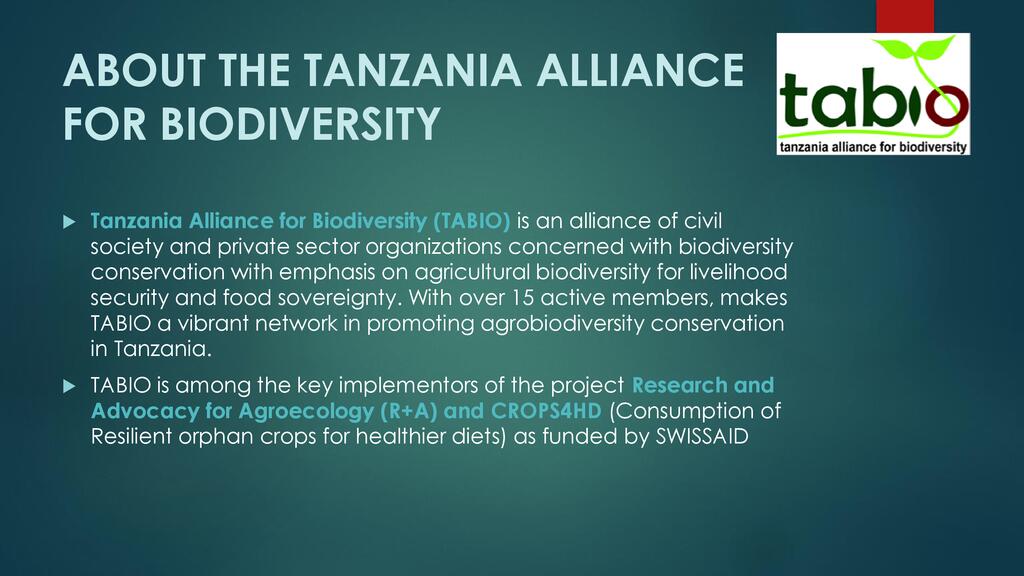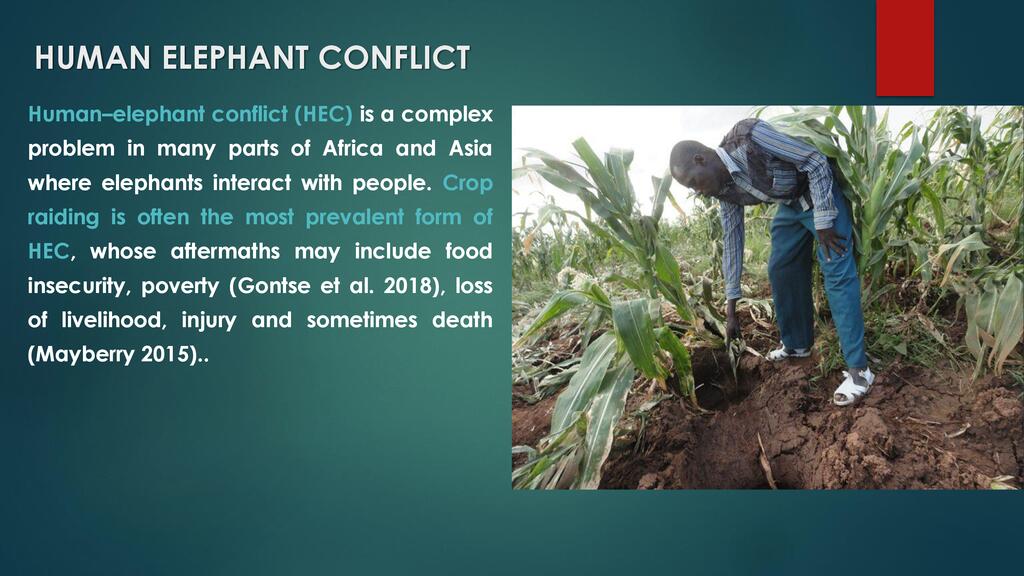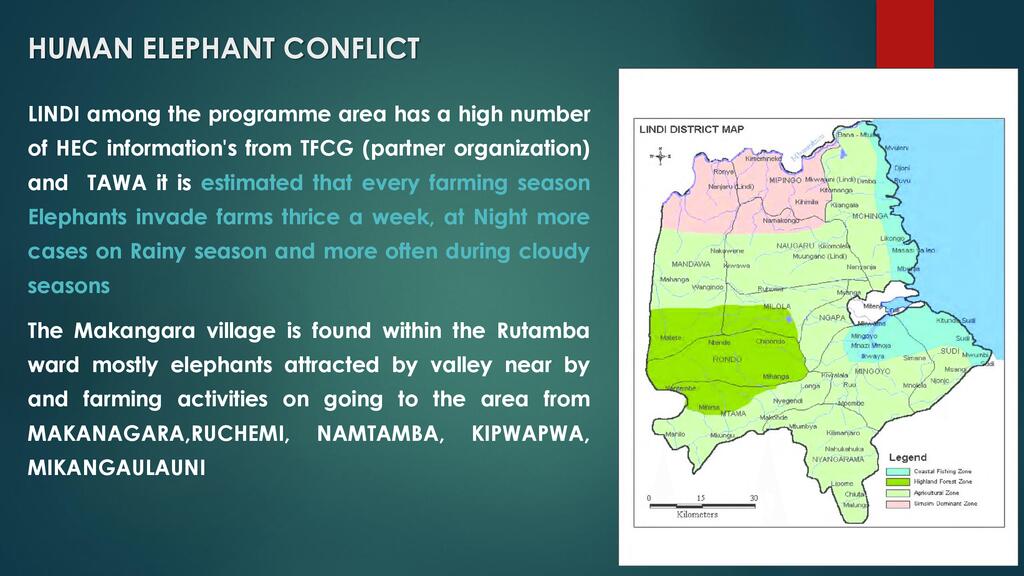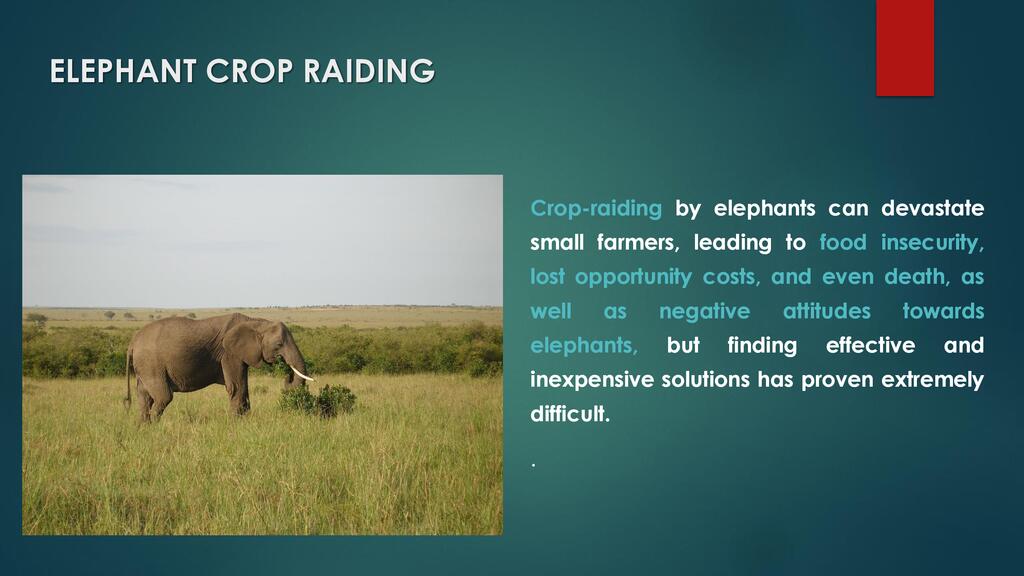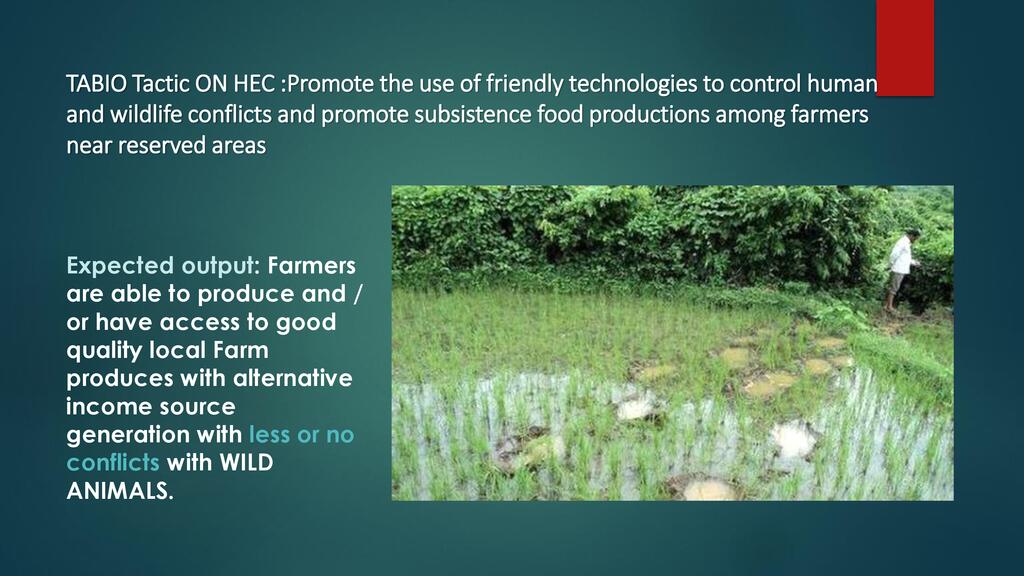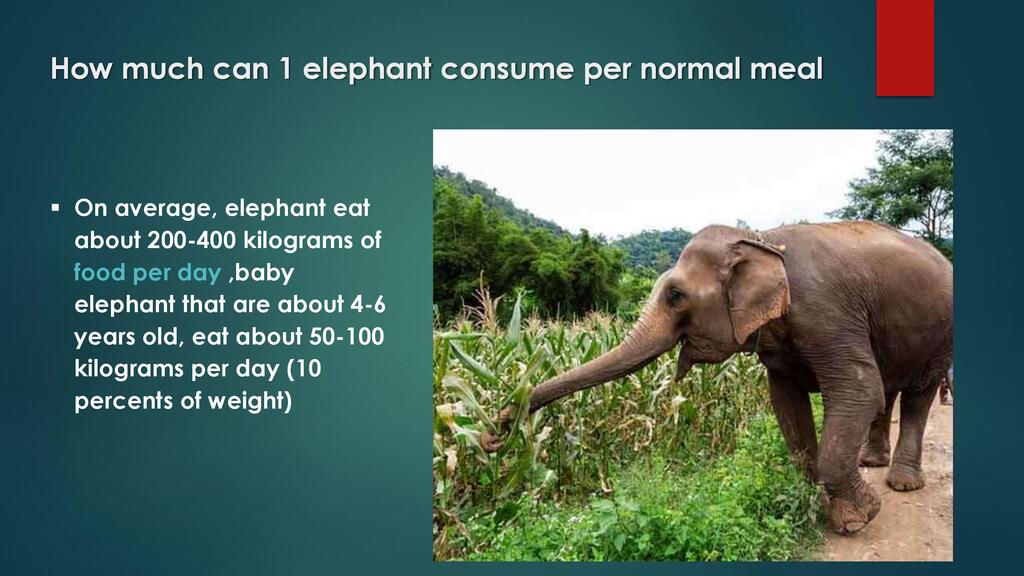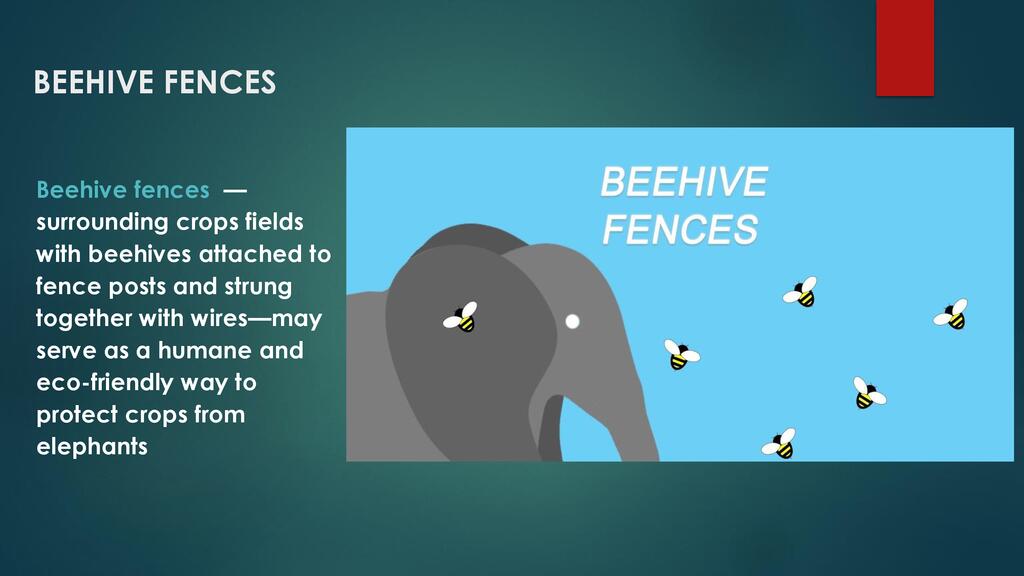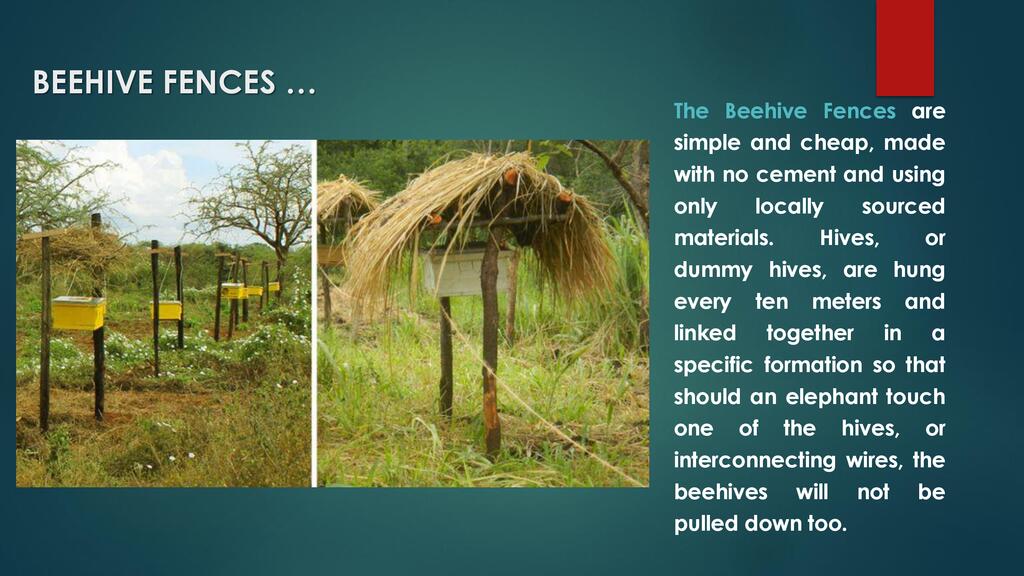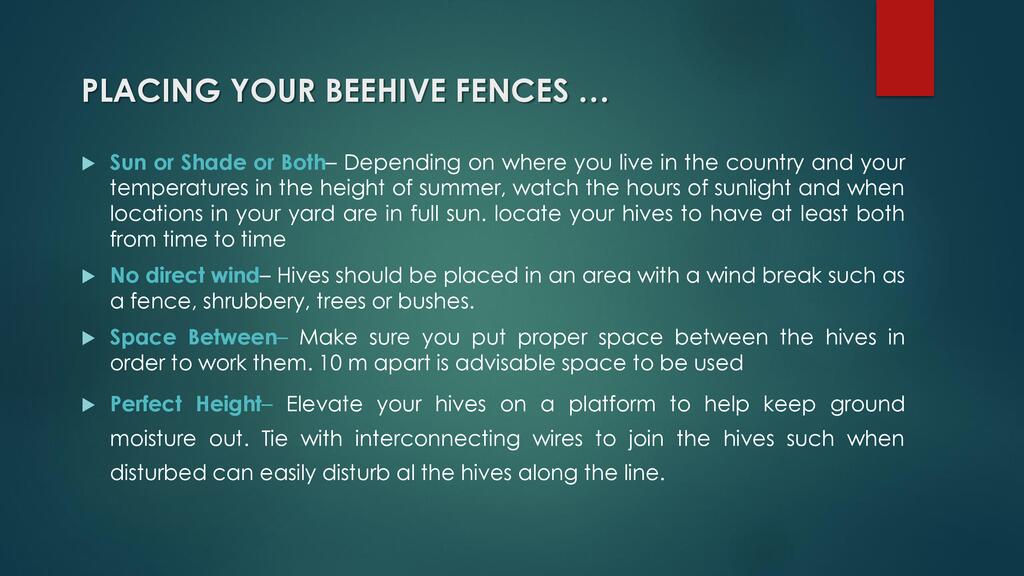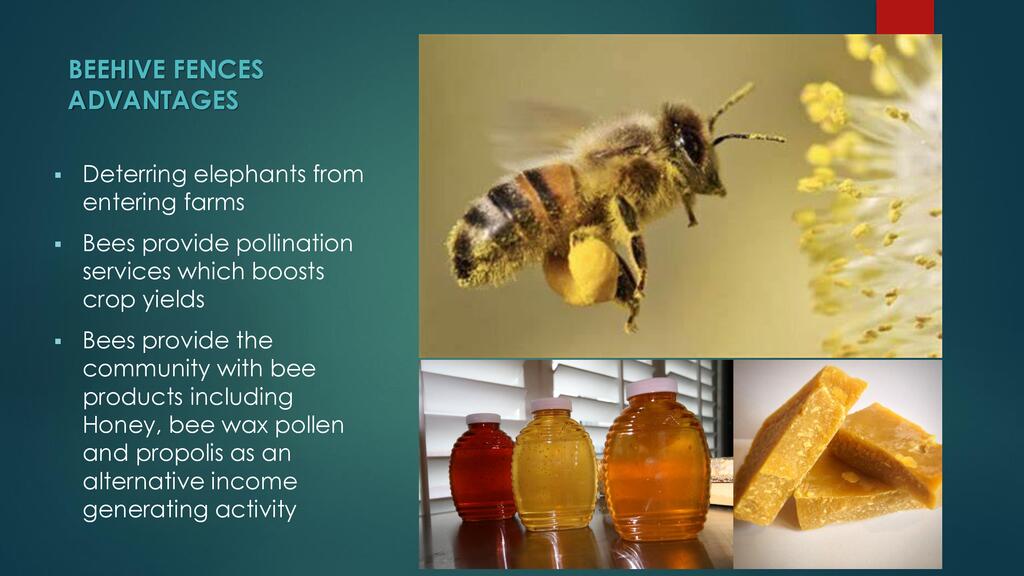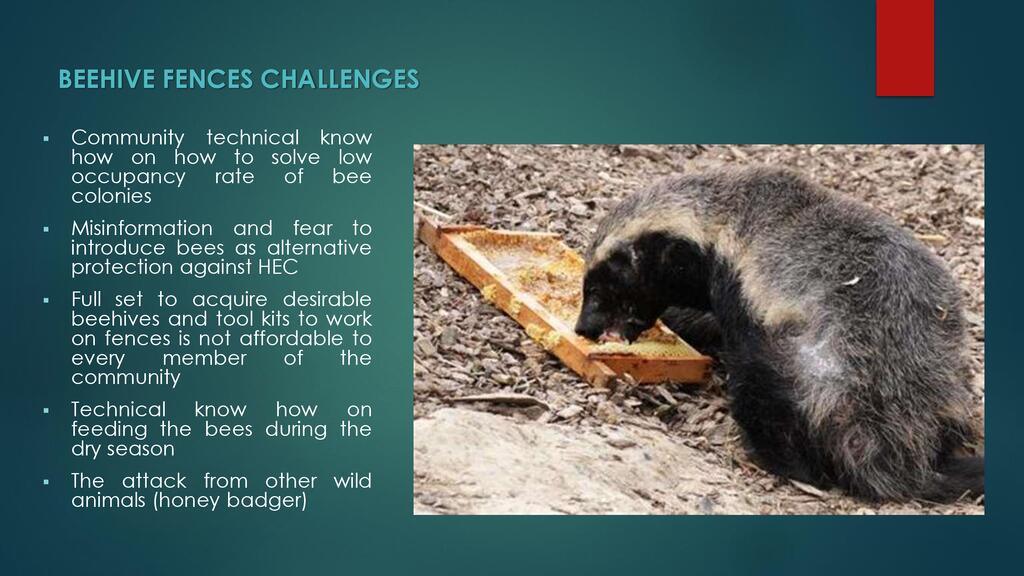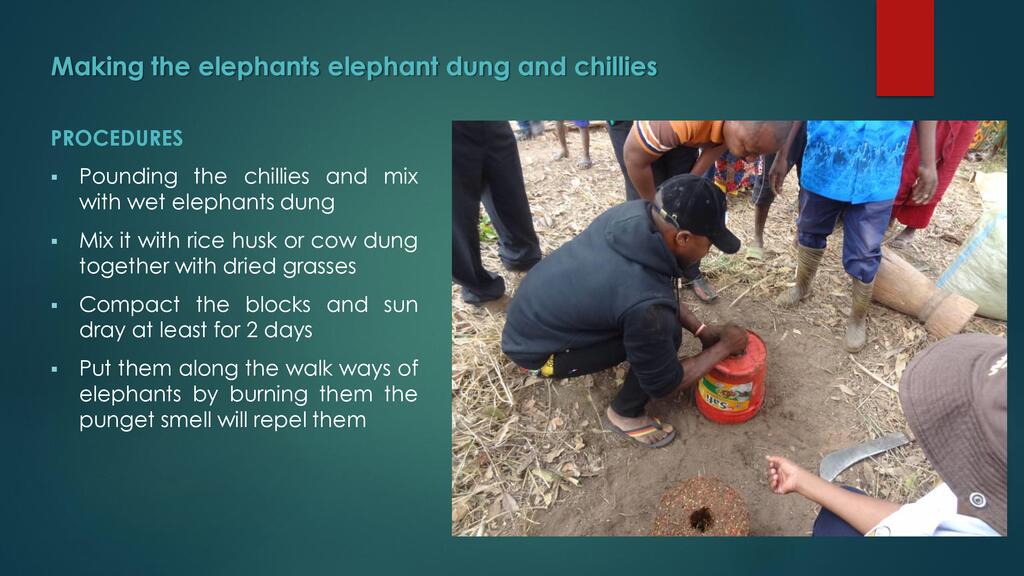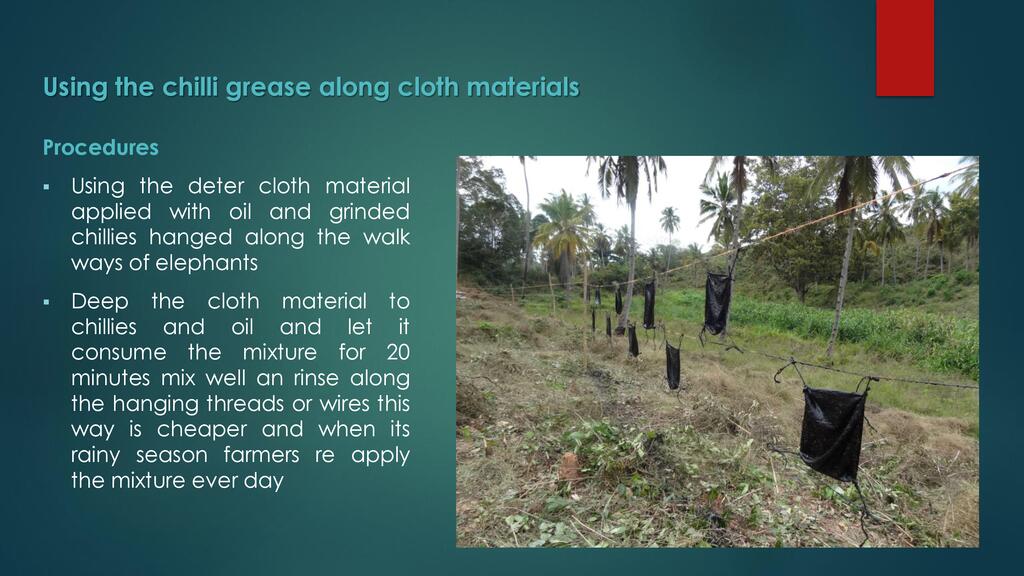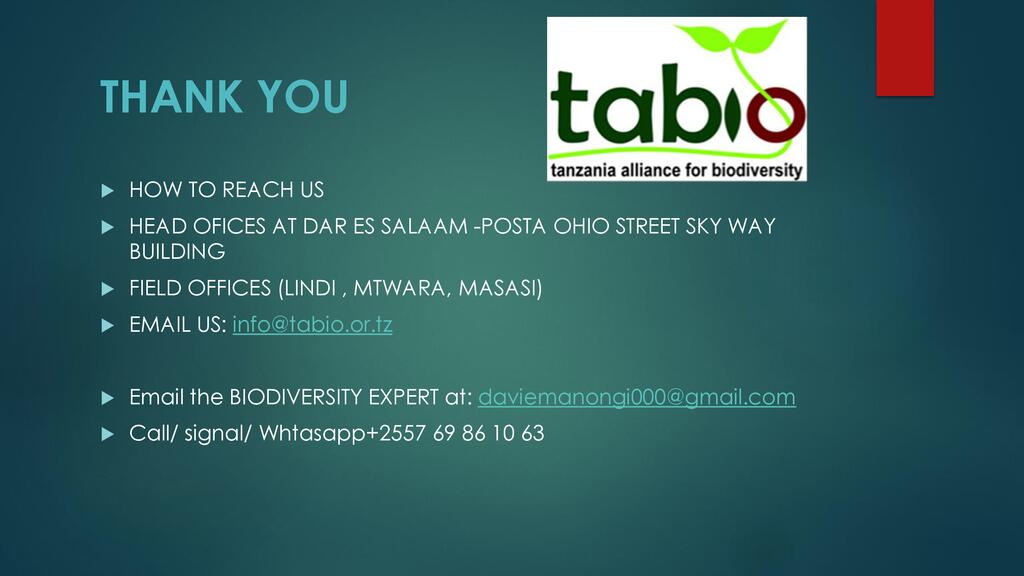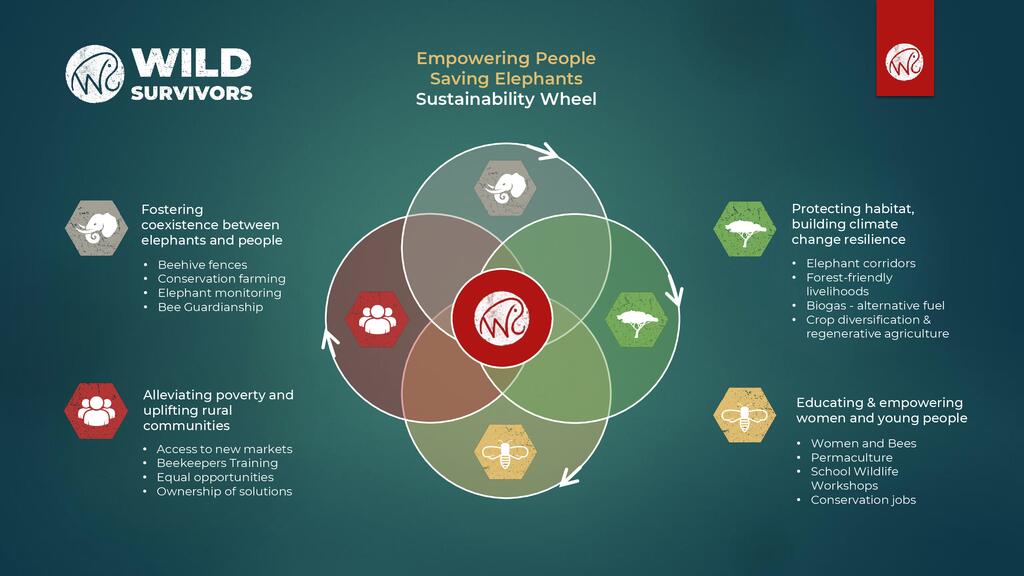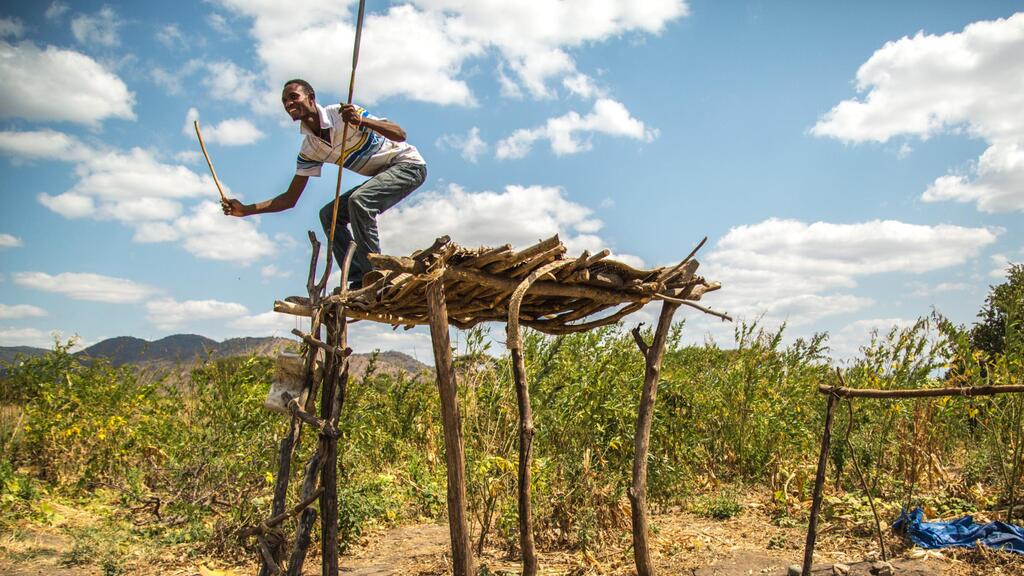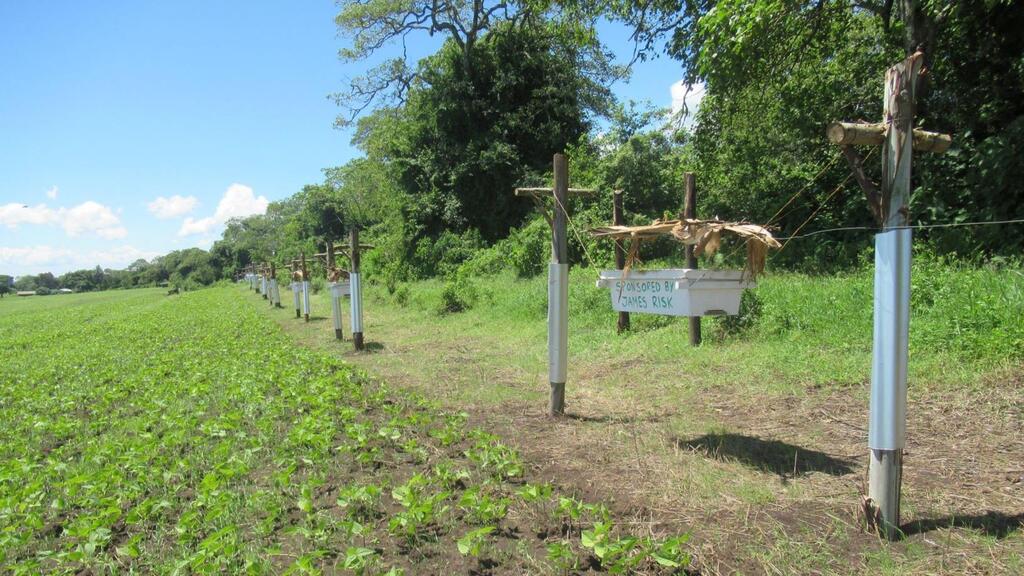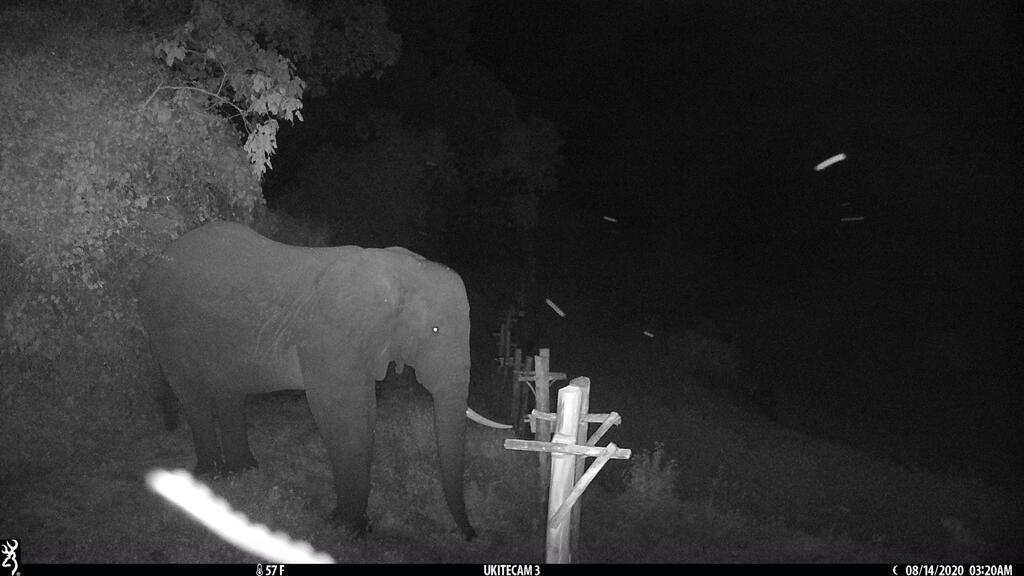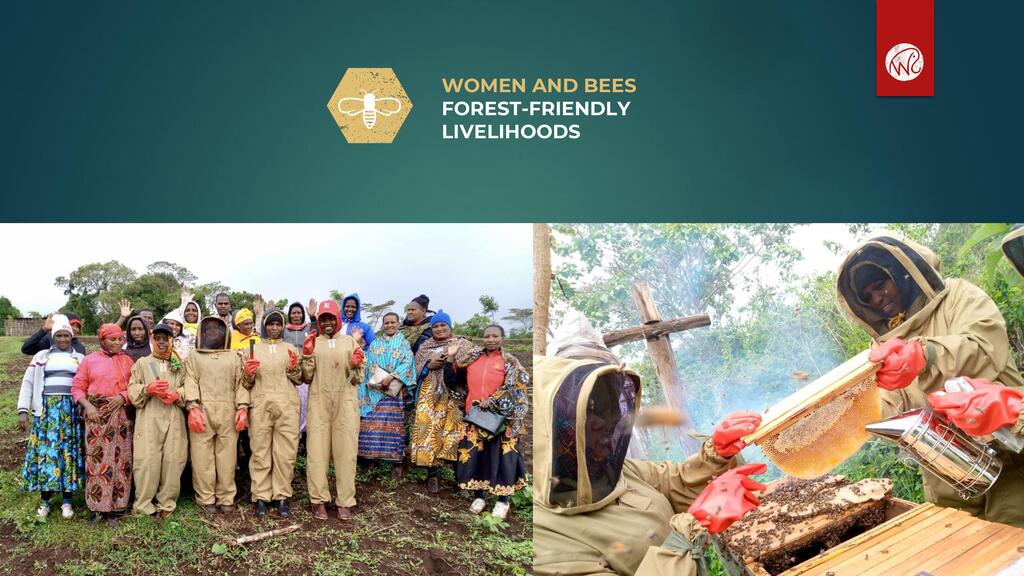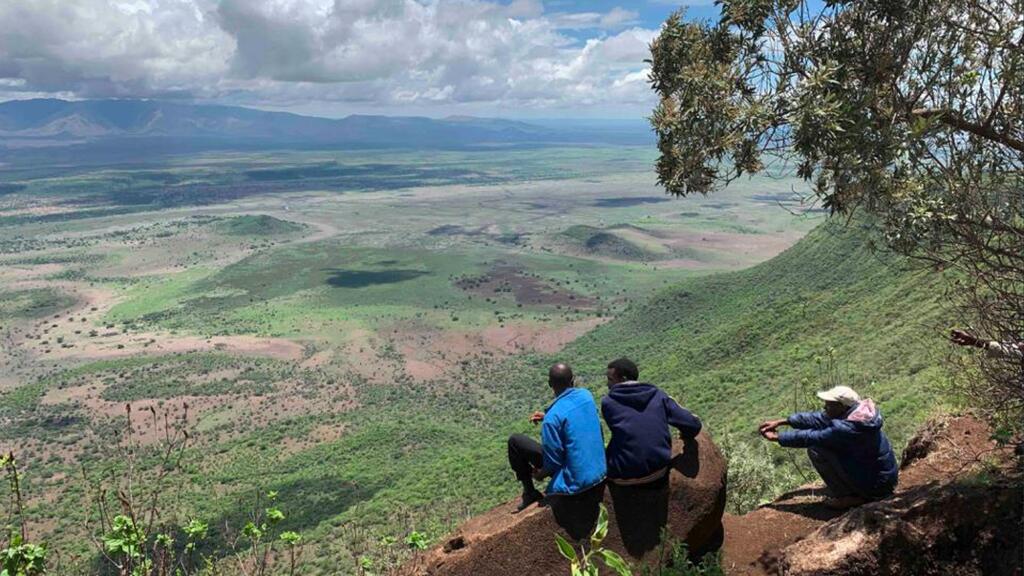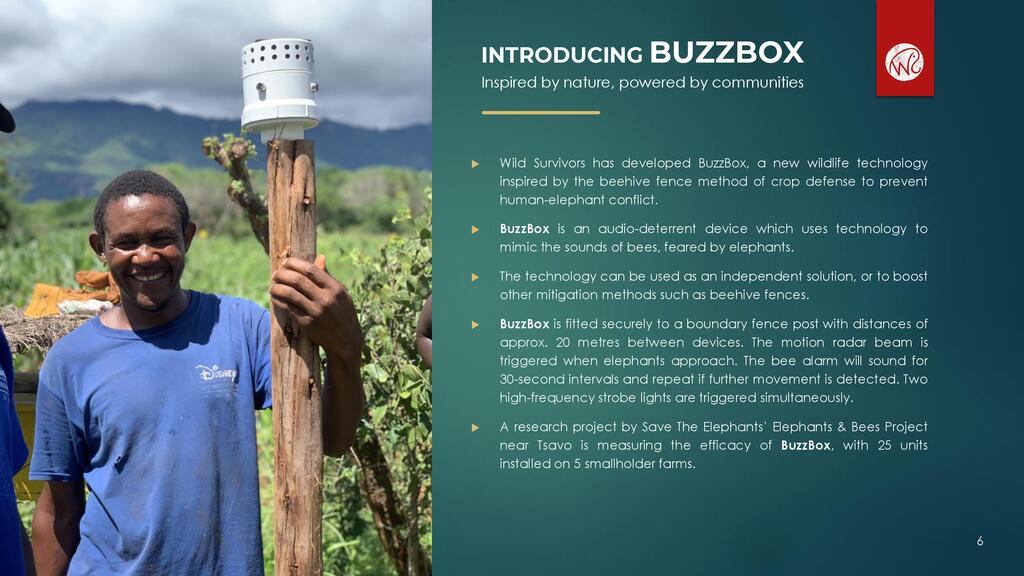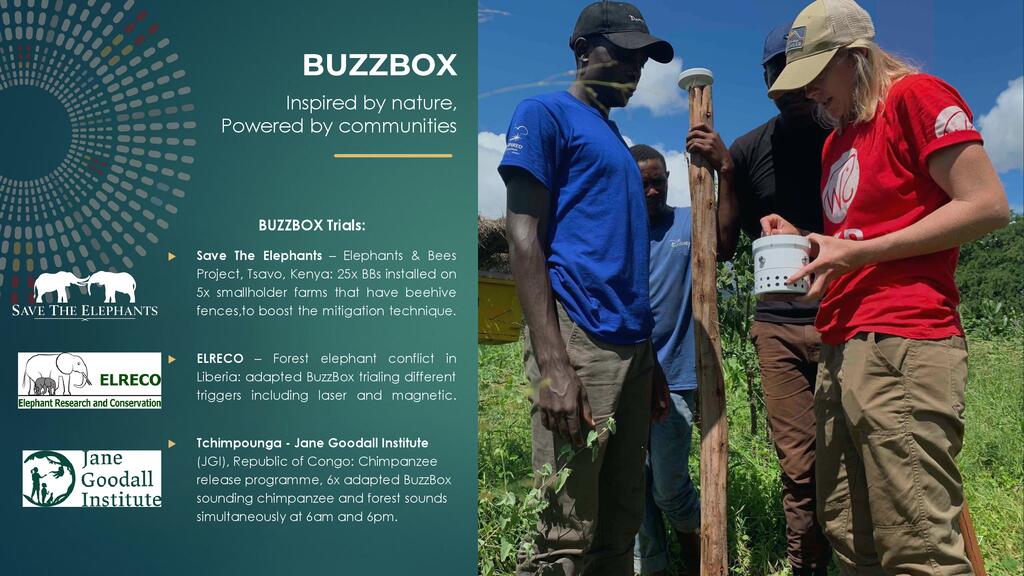Presented By: Daudi Ngosengwa Manongi
Event: ECHO East Africa Biennial Symposium 2023 Sustainable Agriculture Best Practices (22-02-2023)
Session: Crop-raiding by elephants can devastate small farmers, leading to food insecurity, lost opportunity costs, and even death, as well as negative attitudes towards elephants, but finding effective and inexpensive solutions has proven extremely difficult. Beehive fences surrounding crops fields with beehives attached to fence posts and strung together with wires may serve as a humane and eco-friendly way to protect crops from elephants. Beehive fences have benefited farmers in southern Tanzania, and projects elsewhere have begun to test them as well, sharing the success story protecting the research seed trails with farmers along the Makangara village in Lindi region from Elephants incursion through Beekeeping But several uncertainties, including their success at a scale that doesn’t just displace the elephants to the first unfenced farm, suggest they should still be used with other techniques as part of a toolkit to reduce human-elephant conflicts.
* See the Session Video Here
Biographical information: Daudi Ngosengwa Manongi is a specialist in meliponiculture, horticulture, agroforestry, environmental health and expert in agroecology, advocacy on local seeds and local food sovereign. He was nominated a landscape hero in 2020 by Global Landscape Forum, with a robust experience working with different Biodiversity conservation projects with different Implementers including, MME by BOS+, Strong by Trias East Africa, Kilimo Endelevu + by IDP, FFF by FAO, OYE by SNV, Treedom by ECHO EAST AFRICA, Pollinator Project by Tunza Bayoanuai and currently CROPS4HD By TABIO//SWISSAID//FIBL and AFSA. Fran Mahoney founded with Wild Survivors.

